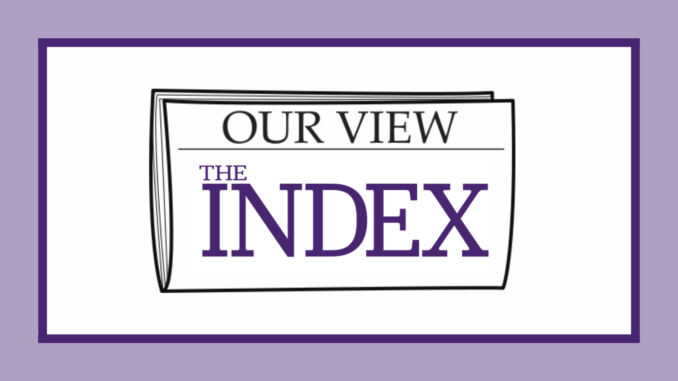
In the November 2021 issue of The Index, staff writer Sydney Ellison wrote about the resurrection of YikYak, a social media platform where users post anonymously. Sara Seifert, director of Truman State University’s Department of Public Safety, said she had concerns about the platform, as it has already been an issue of safety on campus. Sept. 11, a student posted a bomb threat to campus on the app, resulting in a third degree terrorist threat charge, showing that the posts aren’t truly anonymous.
However, the popularity of this app has grown exponentially in the Truman community. In the article, Ellison talks to students about their use of the app for entertainment purposes. Within the Editorial Board, half of the members have YikYak and use it for a similar purpose. It houses funny comments and complaints from all across campus. The app even creates a shared experience between students of different groups since there are no names attached to posts.
YikYak’s website states, “We spend our lives online under the weight of labels — both self-imposed and those assigned to us by our peers … we need risk-free, lens-free spaces to be vulnerable, to be curious, and to learn more about the people around us. Yik Yak is a radically private network connecting you with the people around you. No strings (or labels) attached.” Based on the conversations we have had within the Editorial Board, people seem to be enticed by the lack of labels on the app. It opens up conversations people normally would not have, and broadcasts it to a group of people larger than their own friend groups.
Unfortunately, there is a dark side to such an app where all posts are anonymous: cyberbullying, the reason it was shut down originally in 2017. Since then, the app has made a resurgence. In Feb. 2021, the refounding team purchased the brand rights to Yik Yak and re-released the app on August 16, 2021. Like most social media, the terms and service of the app prohibit hate speech, bullying, violence and bigotry. But how are people held accountable for what they post if there is no name attached to it? Their website states posts that reach negative five total vote points are removed from Yik Yak. Yaks that are reported need to be reviewed by the Yik Yak team before they are removed unless they reach negative five vote points. So in a way it is up to the moderators of the app and the community to vet posts with their voting capabilities.
The app may be a fun way to talk with people outside your normal niche, or share relatable experiences on campus, but it is definitely not a place to get news. While the app’s guidelines prohibit gossip and harmful rumors, the content is still there. We, The Index Editorial Board, believe people need to remain vigilant about what information they believe to be true. It is a cliche, but one that deserves to be repeated, “don’t believe everything you see on the internet to be true,” including the “anonymous” nature of the app. In the case of the bomb threat post, the student was able to be tracked down by police through his account, so there isn’t true anonymity.
Like many other social media apps, YikYak can be used for good and bad. It can be a fun place to vent about the hardships of college in Northeast Missouri, and it can also be a place of hostility and lack of accountability. So be careful what you post and don’t believe everything you read online.
